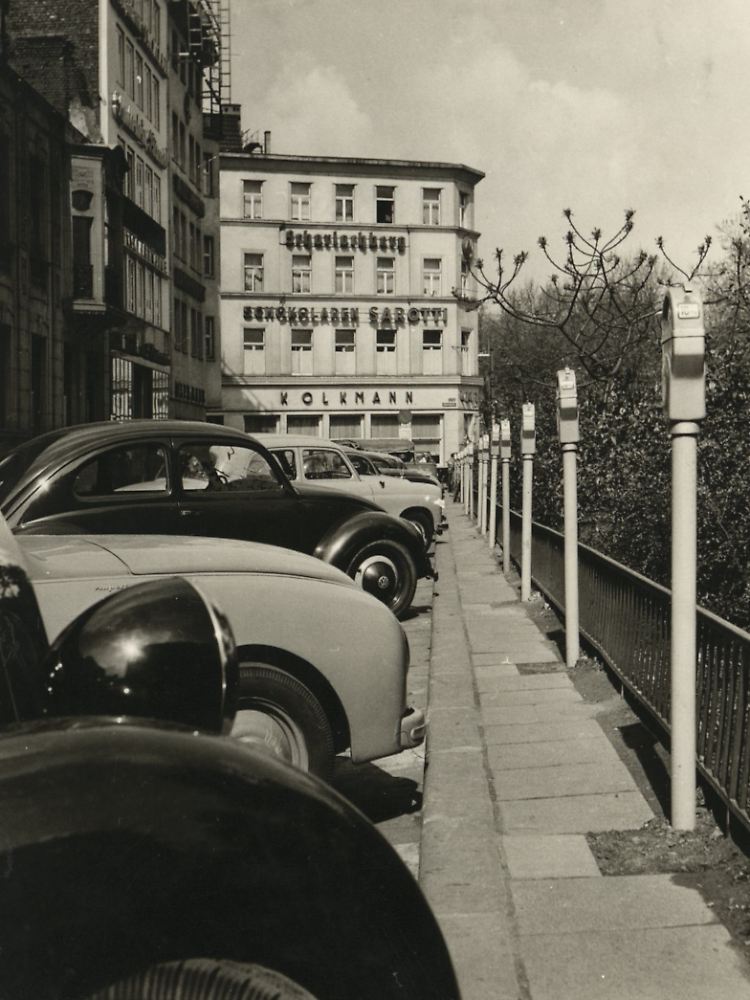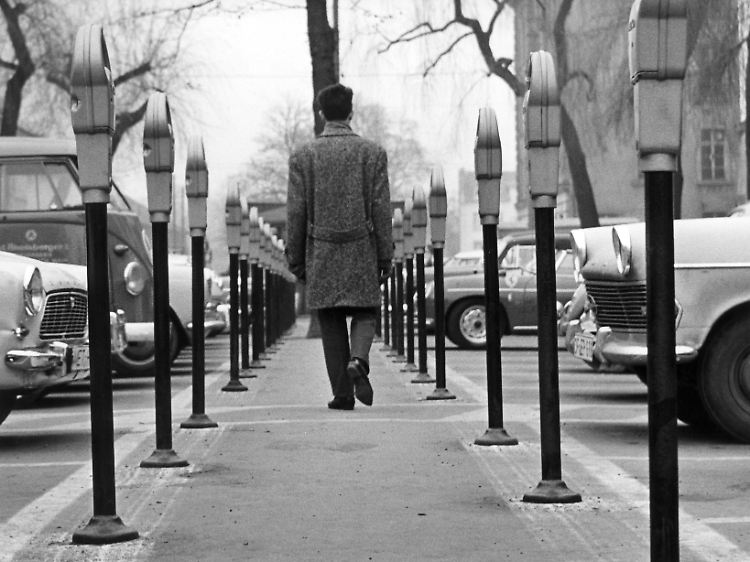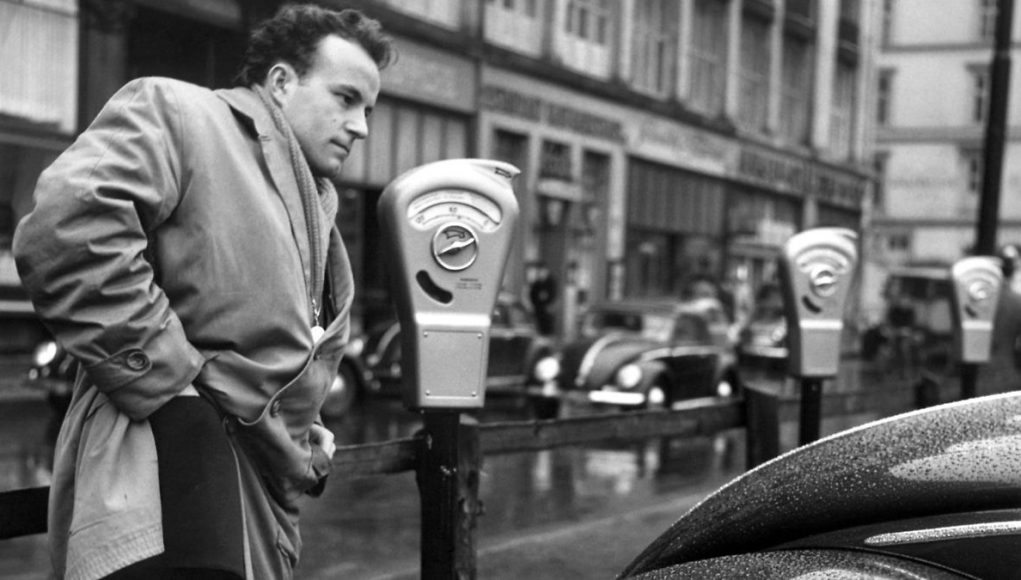Unpopular for 70 years
Germany’s first parking meters – accompanied by protests
This audio version was artificially generated. More info | Send feedback
The first parking meters in Germany were set up in Duisburg in 1954, and the shortage of parking spaces in the city centers was already increasing at that time. Soon the unpopular parkographs were called “penny graves” and there were protests and lawsuits. Today, parking fees are no longer in the penny range.
“One hour, one penny” – this was the motto under which the first parking meters in Germany were set up in Duisburg on January 4, 1954. The US lawyer and publisher Carlton Magee invented the parking meter with a coin slot, rotating lever and parking time display on a sturdy metal rod in the 1930s. With 20 parking meters, each costing 400 marks, Duisburg wanted to limit parking times in order to cope with the parking shortage in the city center that was already at that time.
Around 22,000 motor vehicles were registered in Duisburg at the time – 70 years later, according to city information, the number is more than 300,000. In addition, there are more than 106,000 working people who, according to the State Statistical Office, travel from outside Duisburg every day – according to a NRW-wide microcensus from 2020, 70 percent of them by car.
“There were angry protests, even lawsuits”


Parking meters in Duisburg city center – the first in Germany were here.
(Photo: picture alliance/dpa/Duisburg city archive)
“You have to throw the penny into the slot of the device, and immediately a sign with the white P on a blue background appears under a glass pane. A clockwork turns the disk after minutes…” – this was how the Duisburg press had it clearly in the 1950s presented the innovation. The parking meters quickly became popularly known as “penny graves”. However, the parking fees were not met with enthusiasm by the population 70 years ago – especially when the clock ran out and parkers received warnings.
“They met with little approval right from the start. There were angry protests and even lawsuits,” writes the German Patent and Trademark Office about the introduction in Duisburg. As early as 1954, the then Duisburg traffic department head Fritz Seydaack felt compelled to emphasize in the local press that the city by no means saw the “parkographs as a source of income”.
Parking meters became parking ticket machines


“Groschengrab-Allee” 1964 in Frankfurt am Main.
(Photo: picture alliance /)
However, the timepieces on the side of the road could hardly keep up with the rapidly growing traffic. According to the city, the last parking meters in Duisburg were dismantled and replaced with parking ticket machines more than 30 years ago. Parking prices across the country have long been significantly different than they were during the economic miracle.
The intention is clear: the few parking spaces in the city center or in busy outskirts should not be taken up by long-term parkers and, overall, significantly more people should use public transport or come on foot or by bike, says a city spokesman. That’s understandable, but it doesn’t make parking fees more popular.
“Smart Parking” and “Cell Phone Parking”
Today, the city is trying to at least accommodate parkers technically when it comes to paying: Since 2019, drivers have been able to pay with various providers using an app on their mobile phone under the keyword “Smart Parking”. No more annoying searches for change for the machine, no more puzzling over instructions for use that are written way too small or hassle about defective machines.
More than 310 cities and municipalities already offer digital payment systems for their parking fees. In several municipalities, more than half of the payment volume is already made through “mobile phone parking”, so the cell phone is the number one means of payment there, says the spokesman for the “Smart Parking” initiative.
The old parking meter, which was occasionally knocked over in traffic accidents or intentionally damaged by angry drivers, seems like a long-forgotten relic. An original example of the old “penny graves” can still be admired today in the Duisburg City Museum.
































